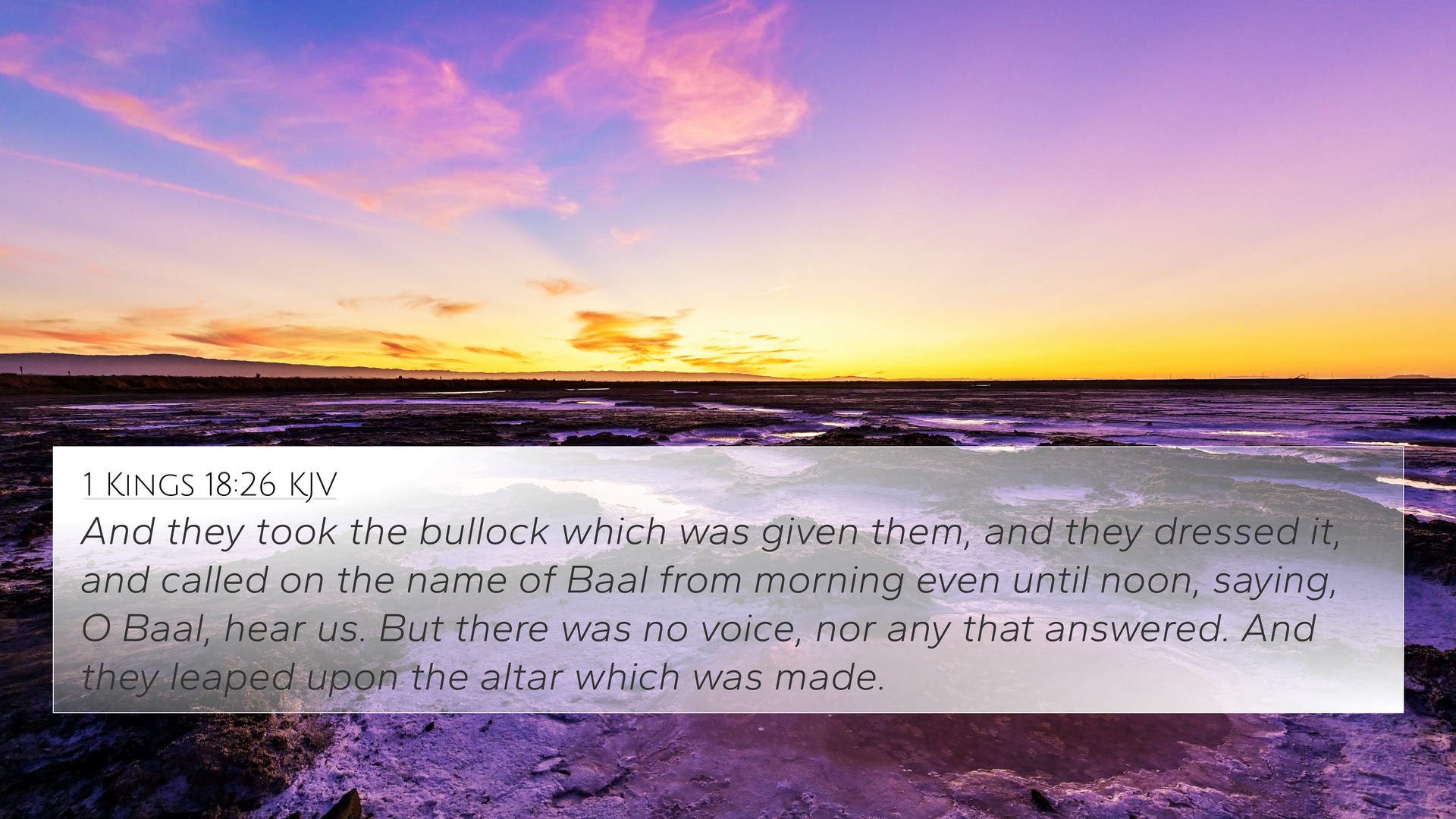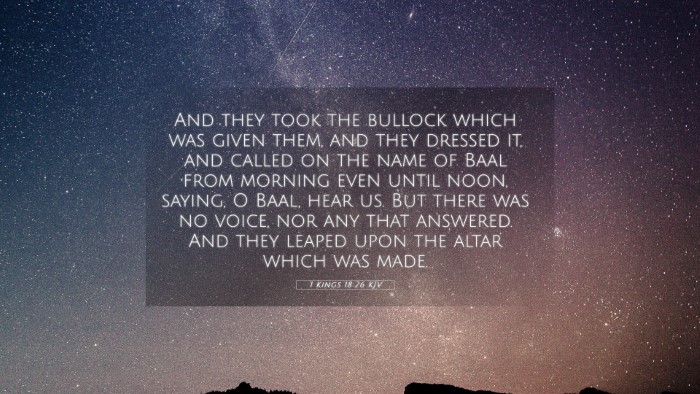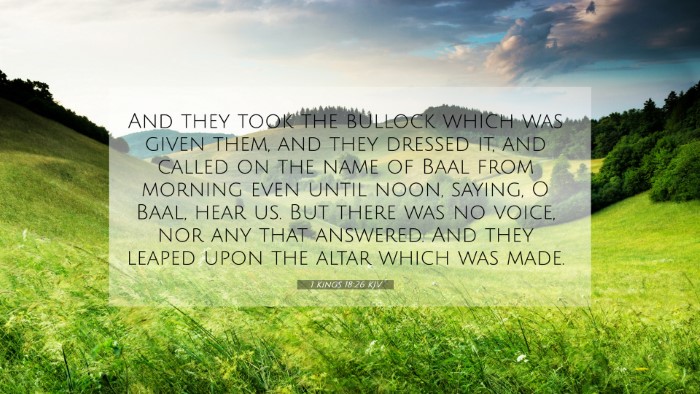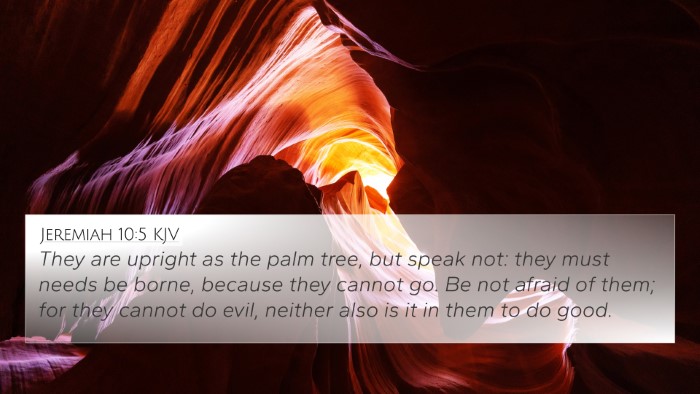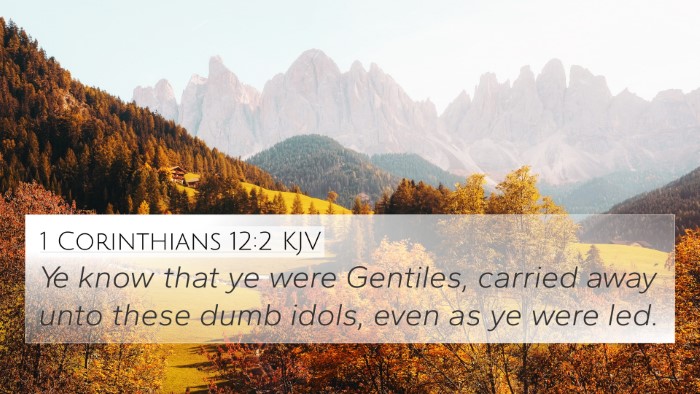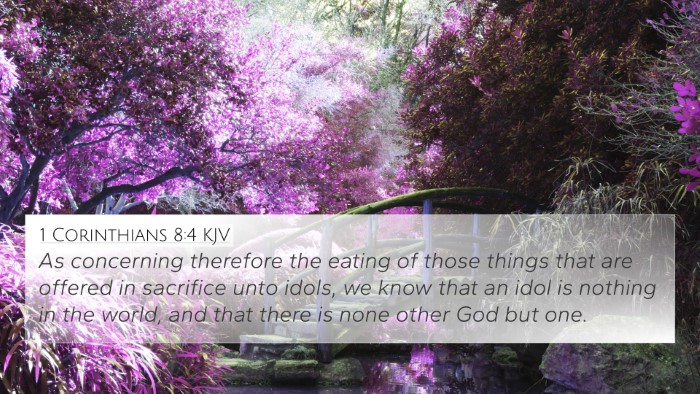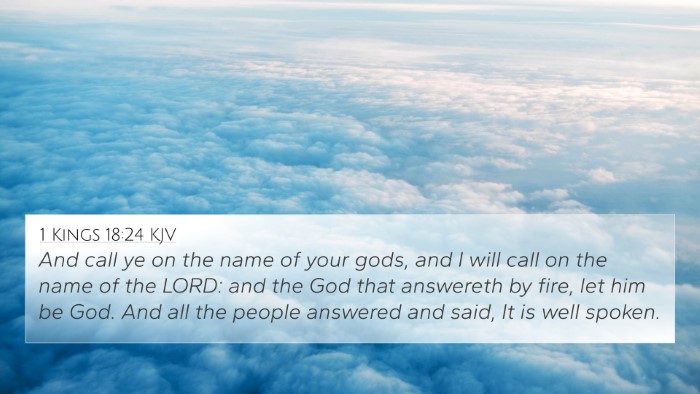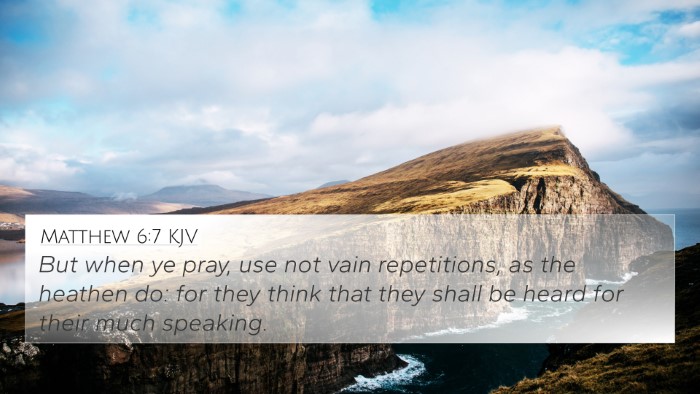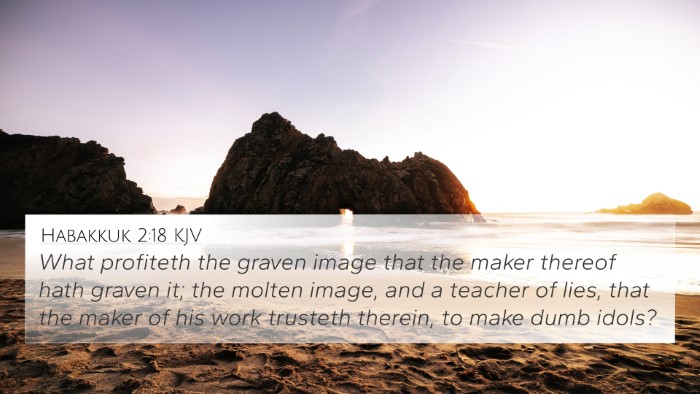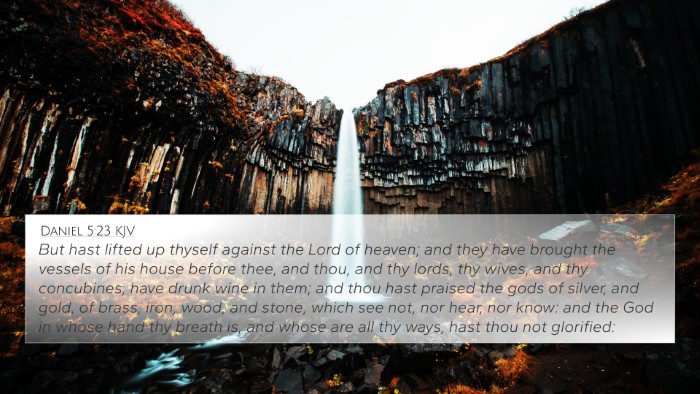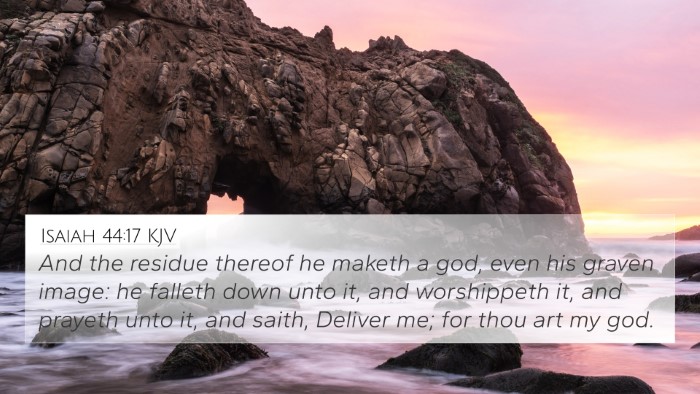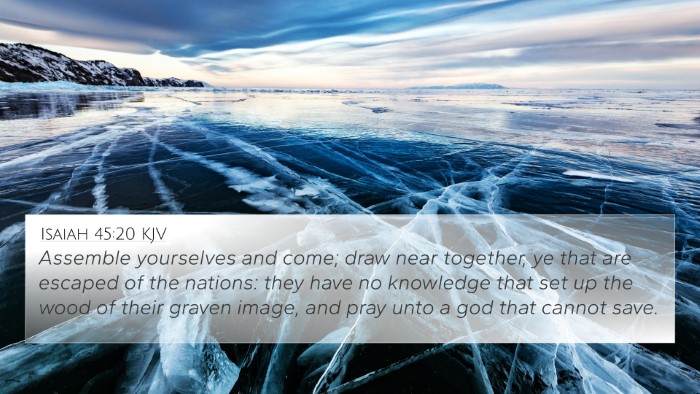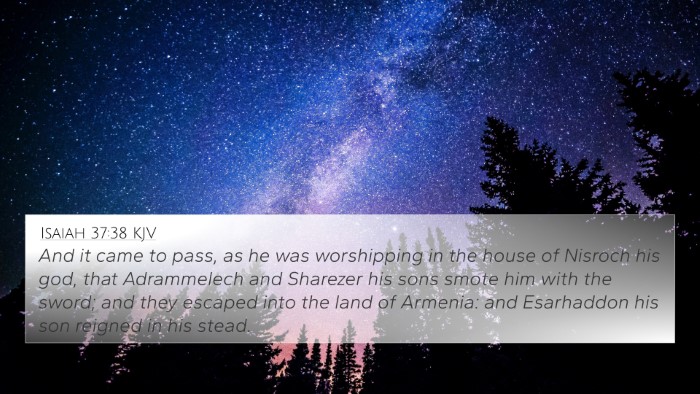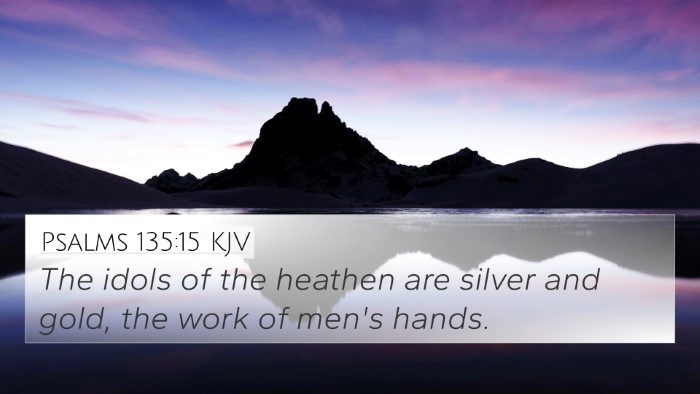Understanding 1 Kings 18:26
1 Kings 18:26 presents a moment of tension and challenge between the prophet Elijah and the prophets of Baal. This verse, which reads:
"And they took the bull that was given them, and they prepared it and called on the name of Baal from morning until noon, saying, 'O Baal, answer us!' But there was no voice, and no one answered. And they limped around the altar that they had made.", captures the futility of worshiping idols, inviting deeper examination into its theological implications and connections with other scripture.
Verse Context
In the larger narrative of 1 Kings 18, the contest on Mount Carmel highlights the division between the worship of Yahweh and the worship of Baal. Here, Elijah confronts the prophets of Baal to demonstrate who is the true God. The lack of response from Baal serves as a powerful illustration of the impotence of false gods.
Key Themes
- Idolatry vs. True Worship: This verse starkly contrasts the fervent cries to Baal with the powerful answers from God, showcasing the emptiness of idol worship.
- The Ineffectiveness of Rituals: The physical actions of the prophets of Baal reflect the hollow nature of their devotion without the presence of divine power.
- Divine Silence and Human Desperation: The silence of Baal serves as a dramatic commentary on the nature of false gods who cannot respond to their followers.
Commentary Insights
Various public domain commentaries shed light on this verse:
Matthew Henry
Henry highlights the absurdity of the prophets’ actions as they call vigorously to Baal. The lack of any answer signifies Baal's non-existence and the eventual victory of Yahweh. He underscores how man's attempts without divine intervention ultimately lead to failure.
Albert Barnes
Barnes points out the cultural context of idolatry in Israel and the expectation that a god would answer during rituals. He emphasizes the need for genuine worship and how this moment disproves the reliability of Baal as a deity, challenging the Israelites' faith commitments.
Adam Clarke
Clarke discusses the dramatic imagery of the prophets limping and their frantic rituals, painting a vivid picture of desperation. He comments on the lengths to which these prophets go, contrasting it with Elijah's straightforward approach in calling upon the Lord.
Related Bible Cross-References
This verse connects with several others that echo similar themes of idol worship and the greatness of God:
- Psalm 115:4-8 - This Psalm mocks the idols made by hands, highlighting their inability to hear or act.
- Isaiah 40:18 - It questions to whom God can be likened, emphasizing His uniqueness and sovereignty.
- Jeremiah 10:5 - Describes idols as lifeless objects that cannot move or respond, paralleling the silence of Baal.
- 1 Corinthians 8:4 - Discusses the reality of idols in terms of their non-existence in the spiritual realm.
- Matthew 6:24 - Jesus teaches about serving two masters, connecting the theme of loyalty between Yahweh and false gods.
- Acts 19:26 - Paul addresses idol worship and its consequences, reflecting the enduring nature of this struggle throughout scripture.
- Romans 1:23 - Speaks to the folly of exchanging God's glory for images, reinforcing the message found in 1 Kings.
Thematic Connections
1 Kings 18:26 operates within a broader narrative that showcases themes central to biblical understanding:
- Faithfulness to God: The tension between God and idols throughout scripture teaches the necessity of loyalty to the Almighty.
- Divine Authority: The events on Mount Carmel reveal God's sovereignty over all things, including the creatures made by human hands.
- The Nature of True Worship: As portrayed in this verse, true worship is lively, responsive, and ultimately powerful, unlike the stagnant rituals of idolaters.
Cross-Referencing Insights
Understanding and connecting verses like 1 Kings 18:26 with others enhances the study of the Bible:
- Utilizing Bible concordance can assist in identifying key themes and cross-references.
- A bible cross-reference guide can lead to deeper insights and thematic connections.
- Engaging in cross-reference Bible study encourages exploration of the relational dynamics between different Biblical texts.
In conclusion, 1 Kings 18:26 is not just a moment in history but a vibrant emblem of the battle between truth and falsehood, urging believers to deepen their understanding of God while acknowledging the relentless grip of idolatry in the world.
